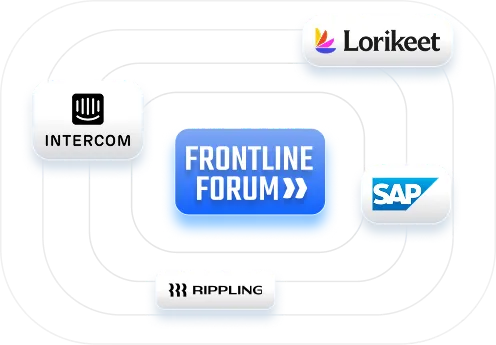In the fast-paced and ever-evolving world of Customer Success, staying ahead of the competition requires more than just cutting-edge technology and innovative solutions.
It demands a deep commitment to your customers' success. While Customer Success (CS) teams have long been recognized as the linchpin in ensuring customer satisfaction and retention, the landscape is evolving, and a new player is stepping into the spotlight: the Customer Success Operations (CS Ops) team.
For B2B SaaS Customer Success leaders, the question at the forefront of their minds is no longer, "Do we need a CS team?"
Rather, it has become, "Is it time to establish a CS Ops team at our organization?"
The answer to this pivotal question could be the catalyst that propels your customer success strategy to new heights and fuels the growth of your organization.
In this blog, we will explore the signs, signals, and strategies that will help you determine when it's the right time to create a Customer Success Operations team in your organization. We will dive into the intricacies of B2B SaaS, discuss the evolving customer landscape, and provide actionable insights for leaders looking to optimize their customer success efforts.
A CS team is responsible for helping customers achieve their desired outcomes with a company's products or services. They do this by building relationships with customers, understanding their needs, and providing them with the resources and support they need to be successful.
Customer Success teams play a critical role in helping companies to achieve their business goals. By helping customers to achieve their desired outcomes, customer success teams can help companies to increase customer retention, reduce churn, and drive revenue growth.
As your customer base grows, so too will the demands on your customer success team. With the growing demands, the customer success team will grow rapidly. A CS Ops team can help to scale your customer success efforts by automating tasks, providing support and training, and developing new processes and programs.
There are a few key signs that it's time to create a Customer Success Operations (CS Ops) team at your organization.
Signs that it's time to create a CS Ops team at your org
1. Your customer success team is growing rapidly
As your customer base grows, so too will the demands on your customer success team. A CS Ops team can help to scale your customer success efforts by automating tasks, providing support and training, and developing new processes and programs.
As a CS team grows, it becomes increasingly important to have scalable processes and programs in place. This includes things like onboarding, customer health scoring, and churn prevention. A CS Ops team can help to develop and implement these processes and programs, ensuring that the CS team is able to efficiently and effectively manage a growing number of customers.
It is important to provide ongoing training and support to CSMs. This includes training on customer success best practices. A CS Ops team can provide this training and support, freeing up CSMs to focus on building relationships with customers and driving success.
2. Your customer success team is struggling to keep up with the workload
If your CSMs are spending a lot of time on manual tasks or are feeling overwhelmed, it may be a sign that they need more support. A CS Ops team can take on many of these tasks, freeing up CSMs to focus on building relationships with customers and driving success.
3. You're not getting the insights you need to improve your customer success program
A CS Ops team can help you to collect and analyze customer data to identify trends, opportunities, and areas for improvement. This information can then be used to develop and implement new strategies and programs to improve the customer experience.
4. You're not using your customer success technology stack to its full potential
A CS Ops team can help you to implement and configure your customer success technology stack to support your team's needs.
A CS Ops team can help to select, implement, and manage customer success technology. This includes things like customer relationship management (CRM) software, customer support software, and customer health scoring software. This can help to ensure that the CRM system is properly configured and that it is being used effectively.
They can also provide training and support to ensure that your team is using the tools effectively.
CS Ops teams typically focus on tasks such as:
- Developing and implementing customer success processes and programs. This includes creating onboarding and adoption programs, customer health scores, and customer churn prevention strategies.
- Analyzing customer data to identify trends and opportunities. This information can then be used to develop and implement new strategies to improve the customer experience.
- Providing training and support to the customer success team. This includes helping CSMs to use customer success technology effectively, and providing guidance on how to manage customer relationships and drive success.
- Managing customer success technology. This includes selecting, implementing, and configuring customer success software, and integrating it with other systems.
Example scenarios for when you need a CS Ops team
Here are some specific examples of when you might want to consider creating a CS Ops team:
- You have more than 10 CSMs.
- Your customer success team is responsible for managing a large number of customer accounts, especially complex accounts.
- You have a lot of customer data, but you're not able to effectively analyze it to identify trends and opportunities.
- You're using a customer success technology stack, but you're not sure how to use it to its full potential.
- You're struggling to scale your customer success efforts as your customer base grows.
If you're experiencing any of these challenges, it's a good idea to consider creating a CS Ops team. A CS Ops team can help you to improve the efficiency and effectiveness of your customer success team, and ultimately drive better outcomes for your customers.
Benefits to having a CS Ops team
Here are some of the benefits of having a customer success operations team:
- Improved customer experience: CS Ops teams can help to improve the customer experience by developing and implementing customer success processes and programs that are designed to help customers achieve their goals.
- Increased customer retention: CS Ops teams can help to increase customer retention by identifying at-risk customers and implementing strategies to prevent churn.
CS Ops teams can help identify at-risk customers in a number of ways, including:
Analyzing customer data: CS Ops teams can analyze customer data to identify trends and patterns that may indicate that a customer is at risk of churning. For example, they may look at metrics such as customer usage, support tickets, and customer satisfaction surveys.
Creating customer health scores: CS Ops teams can create customer health scores to assess the overall health of each customer relationship. Customer health scores typically take into account a variety of factors, such as customer usage, customer satisfaction, and the customer's relationship with their CSM.
Identifying customer churn triggers: CS Ops teams can identify customer churn triggers, which are events or actions that are likely to lead to a customer churning. For example, a customer churn trigger might be when a customer cancels a subscription or when a customer opens a support ticket about a critical issue.
Monitoring customer behavior: CS Ops teams can monitor customer behavior to identify early signs that a customer may be at risk of churning. For example, they may look for changes in customer usage patterns or a decrease in customer engagement.
Some of the most effective strategies that companies can use to prevent churn include:
Onboard customers effectively. Onboarding is the process of helping new customers get started with a company's product or service. A well-designed onboarding process can help customers to learn how to use the product or service effectively, and to see the value in it. This can help to reduce the likelihood of churn in the early stages of the customer lifecycle.
Provide proactive customer support. Proactive customer support is the practice of reaching out to customers before they have a problem. This can be done through phone calls, emails, or in-app messages. Proactive customer support can help to identify and resolve potential problems before they lead to churn.
Collect and analyze customer feedback. Customer feedback is essential for understanding the customer experience and identifying areas for improvement. Companies can collect customer feedback through surveys, interviews, and social media. By analyzing customer feedback, companies can identify the root causes of churn and develop strategies to prevent it.
Segment customers and tailor offerings. Not all customers are the same. Companies can segment customers based on their needs, usage patterns, and other factors. This allows companies to tailor their offerings and support to the specific needs of each customer segment. This can help to improve customer satisfaction and reduce churn.
Use customer success software. Customer success software can help companies to automate and streamline many of the tasks involved in customer success. This can free up customer success teams to focus on building relationships with customers and providing proactive support.
Improved customer lifetime value: CS Ops teams can help to improve customer lifetime value by helping customers to adopt new features and products, and by expanding their usage of current products and services.
A CS Ops team can help you to improve the customer experience, increase customer retention, and drive revenue growth.

























.webp)